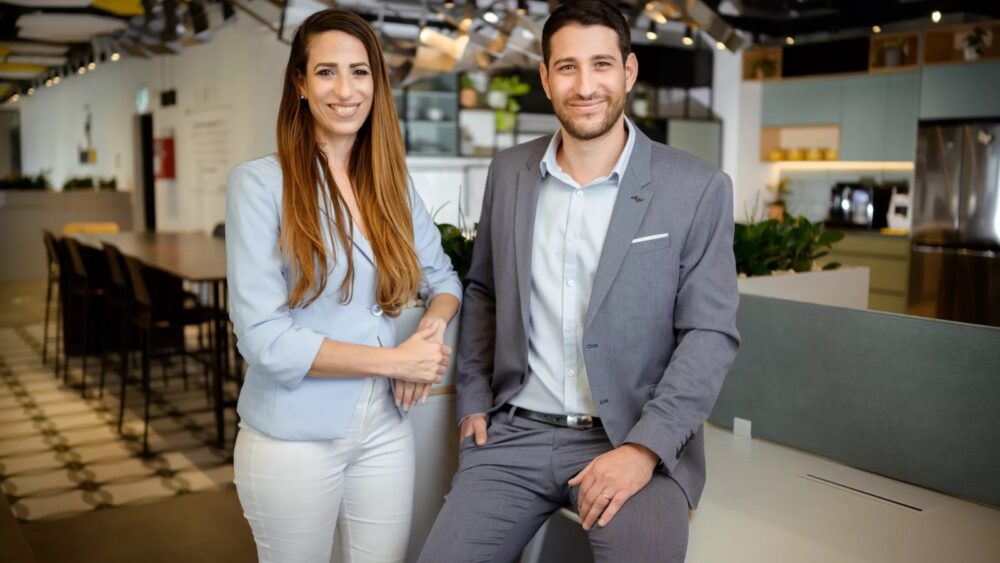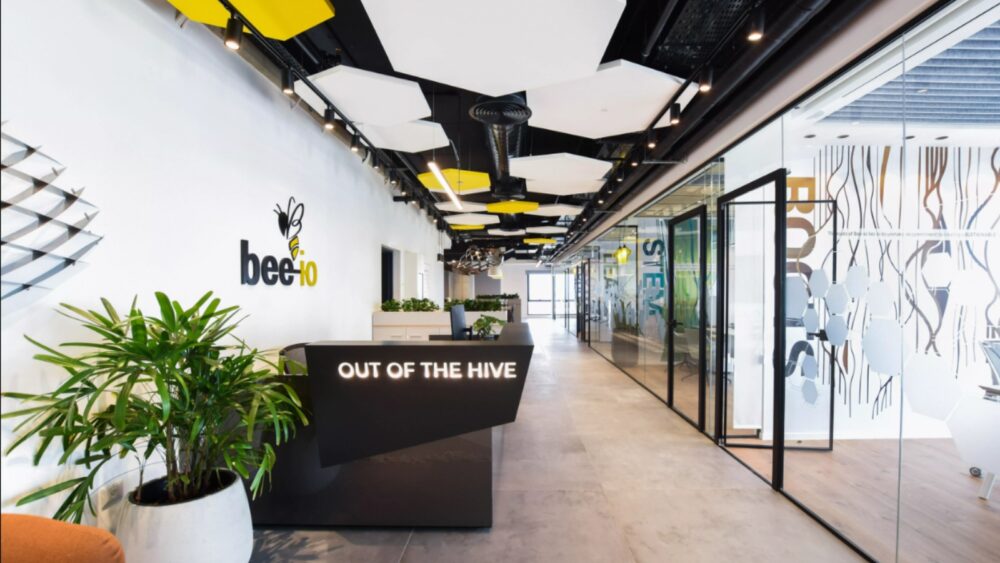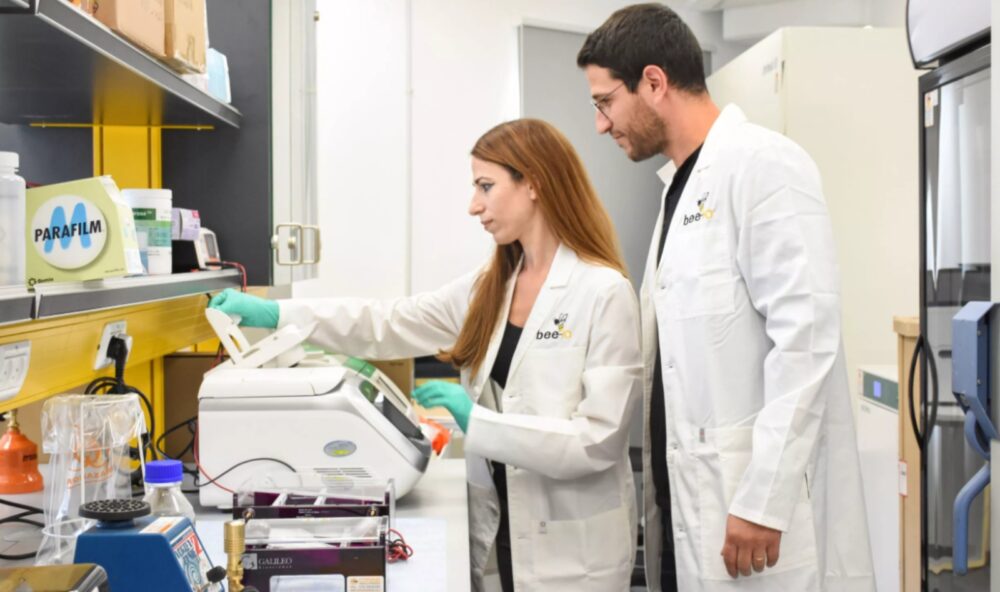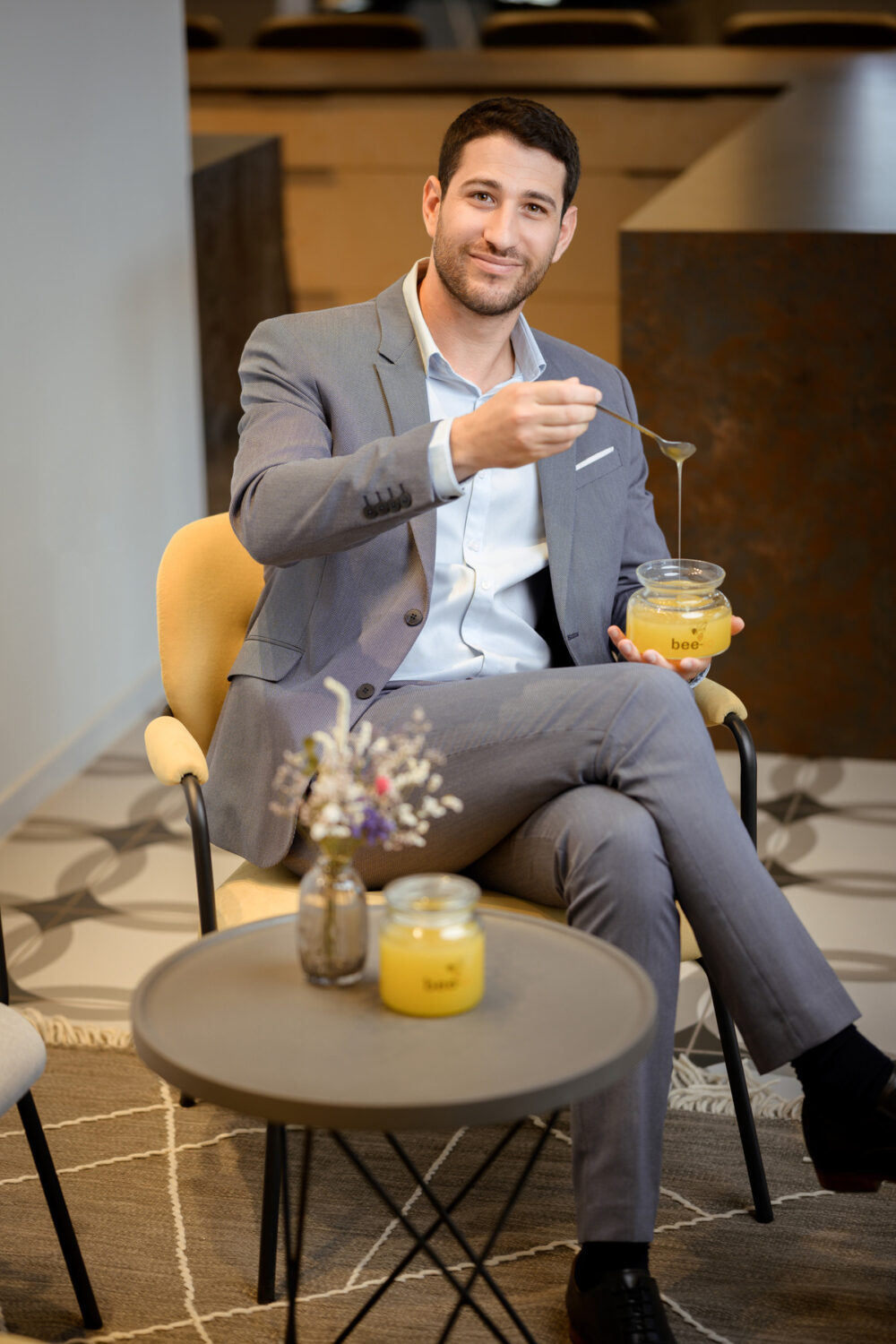Startup aims to make honey without bees
5 min readOfir and Efrat Dvash didn’t know when they were being escalating up on a farm that their life’s work would mirror the that means of the family identify.
“Dvash” is Hebrew for “honey” and the siblings’ new business, Bee.io, is all about generating honey… without the need of bees.

Efrat Dvash Riesenfeld, VP R&D, and Ofir Dvash, CEO. Photograph courtesy of Bee-io
It is no top secret that bees are in issues. A 2021 research found that 25 per cent of known bee species have disappeared because the 1990s. The review notes that the approximately 20,000 bee species “are the most crucial team of insect pollinators” on Earth, contributing to some 85% of cultivated crops.
The difficulty, Ofir Dvash tells ISRAEL21c, is that only 7 of these 20,000 species make honey. Farmers, hoping to improve their bee bang for the buck, have targeted almost solely on all those 7, so their bees can do double-obligation – pollinating fruits and bouquets and making honey when they arrive residence to the hive.
That’s led to a condition exactly where honeybees are staying manipulated unsustainably. For illustration, farmers artificially inseminate their bees alternatively than enable them do what birds and bees do obviously.
“Fifteen yrs ago, the US could generate 70% of its honey use. Now it can produce only 30%. This is a big environmental trouble.”
“They’re picking sperm from the similar species. Soon after generations of undertaking that, it’s manufactured the bees pretty weak and delicate to viruses,” Dvash says. “So, all of a unexpected, you will come to a wholesome beehive and all the bees are lifeless since a virus is attacking them.” The exact viruses also infect wild bees.
As a consequence, 50% of the wild bees in Europe are now on the verge of extinction, Dvash laments. And individuals that remain get pumped with antibiotics, pesticides and other harmful toxins unsafe to human health.
US farms normally end the 12 months with just 50% of their authentic beehives. “Fifteen years ago, the US could develop 70% of its honey usage. Now it can make only 30%. This is a substantial environmental dilemma,” Dvash notes.
Honey in enormous demand from customers
To make matters worse, the demand for honey has only been increasing as worries about white sugar drive customers to much healthier choices.
“Honey is the most beloved ‘super food stuff,’” Dvash says. “When you take in sugar, you get just pleasure but not substantially else out of it. Honey will assistance your health and fitness.”
The United States alone consumes some 400,000 tons of honey a year worldwide it is near to two million tons.
“The provide side simply cannot fulfill this need,” Dvash notes, “so charges are increasing fast. In the very last 10 decades, rates practically doubled, creating honey something like a high quality solution. We want to enable all people to have different types of honey, unique flavors, at fair costs.”
Aspect of the challenge is that bees are not significantly effective honey-makers.
“Twelve bees can make just a single teaspoon of honey in excess of their whole life,” Dvash clarifies. “One beehive can make up to 35 kilograms a year. So, how several beehives will you have to have for two million tons of honey?”
The rationale they develop only a tiny is that honey is meant to maintain bees through the winter when there aren’t any flowers to get nectar from, Dvash points out.
“The difficulties is, we’re using their honey, so what takes place now in wintertime? They die from hunger.”
Cultivated honey
Bee-io aims to fix this sticky problem by decoupling honey production from the bees’ principal career of pollination.
Bee-io would make cultivated honey by mimicking the bees’ normal system. Nectar collected from plants is filtered and inserted into a biosynthesis device where it’s combined with particular enzymes and evaporated, resulting in honey. (The enzymes are created using a fermentation system, producing Bee-io’s product or service genuinely vegan.)

Bee-io’s office environment in Rehovot. Photo courtesy of Bee-io
Bee-io’s honey has all the exact same natural vitamins, minerals and antioxidants as “real” honey but without the antibiotic additives.
“Because we can select from which plants and flowers to make the honey, we can established the flavor. Nature can’t do that,” Dvash provides.
Bee-io’s cultivated honey is also cost-free from possible potential risks if a bee picks up nectar from a poisonous plant.
“That’s why kids less than the age of a single aren’t authorized to eat honey,” Dvash suggests. “Our honey can be eaten by youngsters that age.”
Reduced value
Bee-io’s equipment is continue to in the layout phase, but sooner or later the company strategies to assemble amenities in the United States, and later on in other countries, to produce significant amounts of distinct kinds.
These cultivated honeys would price considerably less than their bee-manufactured counterparts, such as unique varieties these as chamomile honey, espresso honey or even Manuka honey, which charges as substantially as $1,000 for each kilo.

Efrat Dvir Riesenfeld and Ofir Dvash in the lab. Image courtesy of Bee-io
Bee-io, which has raised a complete of $6.7 million, will get its honey into the sector working with a enterprise-to-business (B2B) product in which Bee-io will supply “clean raw material that foodstuff manufacturers can use in their possess products” and a B2C design the place Bee-io makes its individual models for buyers to buy directly.
Dvash hopes that professional product sales will start in 2023 following passing regulatory hurdles, these as with the US Food and drug administration.
Farm-elevated

Ofir Dvash with the completed item. Picture courtesy of Bee-io
The Dvashes grew up close to bees in Moshav Hatzav in close proximity to Gedera. “I’m the son of a farmer. We had a greenhouse and employed distinct forms of bees, but only for pollination,” Ofir Dvash tells ISRAEL21c.
He expended 12 decades doing work with army merchandise and afterwards as CTO of GKI Group where he worked on systems like CozyFlow, a loved ones of products and solutions for parents, and Milk and Honey Distillery, Israel’s initially whiskey distillery.
Efrat has a PhD in molecular genetics from the Weizmann Institute of Technologies and directed the Breast Most cancers Translational Investigation Laboratory at Tel Aviv Sourasky Healthcare Center.
So, how does cultivated honey taste? We couldn’t sample the fruits of Bee-io’s labor – Zoom doesn’t nonetheless help teleportation of physical products. But Dvash insists we would not know the big difference.
That may possibly be the sweetest news of all.
Get your sweet on here.





